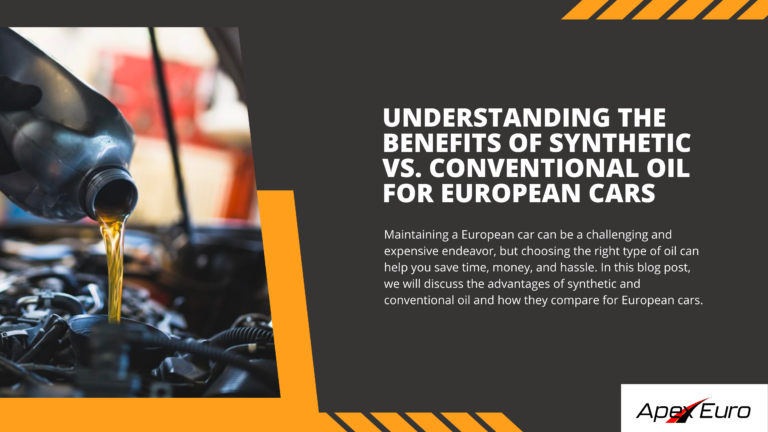Maintaining a European car can be a challenging and expensive endeavor, but choosing the right type of oil can help you save time, money, and hassle. When it comes to choosing between synthetic and conventional oil for your European car, it’s important to understand the benefits of each type. In this blog post, we will discuss the advantages of synthetic and conventional oil and how they compare for European cars.

Conventional Oil
Conventional oil is made from crude oil and has been the standard oil for cars for many years. It is less expensive than synthetic oil and is widely available at most auto shops. While it can adequately lubricate an engine, conventional oil has a shorter lifespan and needs to be changed more frequently than synthetic oil.
Advantages of Conventional Oil:
Synthetic Oil
Advantages of Synthetic Oil:
Which is Better for European Cars?
When it comes to choosing between synthetic and conventional oil for your European car, it’s important to consider your car’s specific needs and your budget. European cars are known for their high-performance engines, which require high-quality oil for optimal performance and protection. While conventional oil can provide adequate lubrication, synthetic oil offers superior engine protection and performance, making it the better option for European cars.
While conventional oil is a less expensive option, synthetic oil offers superior engine protection and performance, making it the better option for European cars. By choosing synthetic oil, you can help to extend the life of your car’s engine, improve performance and fuel efficiency, and reduce maintenance costs and time. It’s important to consult your car’s owner’s manual and an experienced mechanic to determine the best type of oil for your specific make and model.